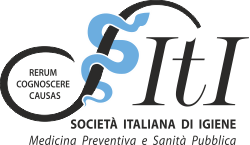The anti-Hib vaccine is an inactivated (ie obtained with fragments of the bacterium) and conjugated (ie bound to a protein to make it more effective) vaccine which is administered intramuscularly. The vaccine also exists as a separate preparation, but in general it is given, in the first year of life, in a single vaccine called ‘hexavalent’ (as it contains 6 vaccines: Diphtheria-Tetanus-Pertussis, Polio, Hepatitis B and, indeed, Hib) in a single syringe ("combined" vaccine). A combined vaccine is as effective and safe as separate vaccines but enables the child to be protected with just one injection.
When to vaccinate
The vaccine is given in three doses and in the current vaccination schedule is offered as follows:
- the first dose at the 3rd month of life
- the second dose at the 5th month of life
- the third dose at the 11th-13th month of life
Children over 5 years of age do not generally need the vaccine, but in some children (or adults) who have certain conditions (absence or diseases of the spleen, immune deficiency diseases such as HIV/AIDS, neoplasms or treatment for neoplasms, bone marrow transplantation, sickle cell anaemia) at least one dose of the vaccine should be given.
Who should not be vaccinated
A child should not be vaccinated if he/she has a severe allergy to any component of the vaccine or has had a severe allergic reaction to a previous vaccine dose.
Always inform your doctor if your child has any serious allergies.
When to postpone vaccination
Children with mild illnesses (such as a cold) can generally be vaccinated safely. If, on the other hand, they have moderate or severe illnesses, it is advisable to delay vaccination until they have recovered.
Vaccination risks
Like any other drug, a vaccine can cause serious problems, such as a severe allergic reaction. However, the risk of any vaccine causing serious harm or death is extremely small. Most children who receive the Hib vaccine do not encounter any problems.
There may be mild reactions such as:
- redness and swelling at the injection site (about 1 child in 4)
- fever over 39 ° C (1 child in 20)
These problems generally appear within 24 hours of vaccination and can last 2-3 days.



